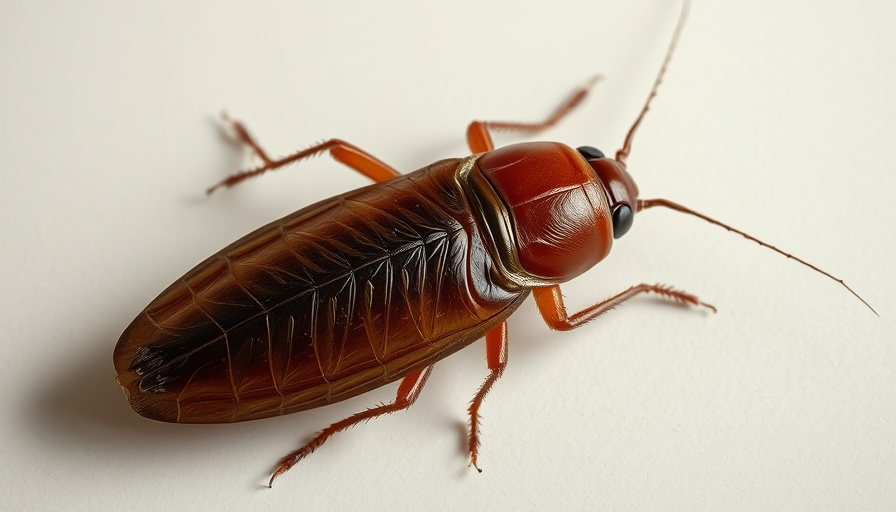
Understanding Boric Acid: A Natural Solution for Pests
Boric acid, a naturally occurring mineral, is gaining attention as a go-to solution for pest control in homes. Found in everything from seawater to soil, this chemical compound is not just an effective insecticide but also plays various roles in manufacturing and preservation. Its dual nature raises questions among homeowners: Is it safe to use around children and pets? Let's delve deeper into how boric acid works against common pests and explore its safety considerations.
How Does Boric Acid Work?
When applied as an insecticide, boric acid operates in a unique way. Upon contact, it sticks to the insect's body. As they groom themselves, they ingest the powder, which disrupts their digestive systems and eventually leads to death. It is effective against cockroaches, ants, termites, and other creepy crawlies. However, boric acid requires time to work — taking days or even weeks to show results, which can be a point of patience-testing concern for homeowners.
The Safety of Boric Acid: What You Should Know
One of the primary concerns with any pesticide is safety, especially in homes with children or pets. According to board-certified entomologists Wyatt West and Dr. Nancy Troyano, although boric acid is generally considered low in toxicity for humans and pets when used properly, caution is still advised. It is vital to keep it away from pets and children, as ingestion can lead to stomach upset and more severe health issues. Always follow application guidelines to minimize risks.
Practical Tips for Safe Usage of Boric Acid
For those considering boric acid as a pest control solution, here are some actionable tips for its safe use in your home:
- Target Areas: Use boric acid in specific areas where pests are frequently encountered. It can be effective when applied in cracks, behind appliances, or in other hard-to-reach spots.
- Use Sparingly: A little goes a long way. Over-application can lead not only to waste but also potential hazards.
- Monitor and Retouch: Since the effects take time to manifest, keep an eye on treated areas and reapply as needed.
DIY Alternatives: Beyond Boric Acid
If you're looking for non-toxic ways to handle pest issues, consider these DIY home projects that utilize everyday items:
- Essential Oil Sprays: Natural oils like clove and peppermint can repel various insects. A simple spray with water can go a long way.
- Vinegar Solutions: A vinegar and water solution can deter ants and other pests, providing a chemical-free approach to pest management.
- Homemade Traps: Create simple traps using sugar and water to lure and capture fruit flies.
Local vs. Global Perspectives on Pest Control
In many cultures around the world, the management of pests has taken on personalized roles, incorporating local plants and traditional wisdom. While some homeowners may lean heavily on chemical solutions like boric acid or commercial pest control services, others find success in natural remedies that have been passed down through generations. This global perspective on pest control not only educates but also empowers individuals to take charge in designing a pest-free living environment.
Conclusion: Make Informed Choices for Your Home
Ultimately, using boric acid for bugs can be a safe and effective method of pest control when applied with caution. Ensure that you are informed about its characteristics and safety precautions, balancing convenience with the well-being of your family and pets. Whether opting for boric acid or exploring creative DIY home improvement projects, always prioritize safety and effectiveness in creating a comfortable living space.
 Add Row
Add Row  Add
Add 




Write A Comment